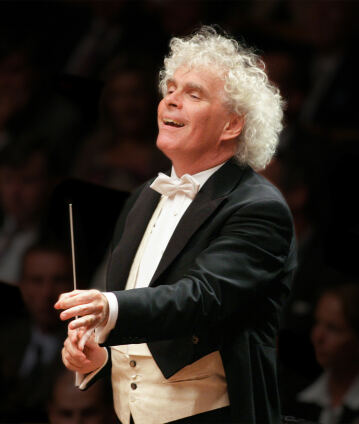Interview
Winrich Hopp en conversation avec Helge Grünewald Simon Rattle dirige Stravinsky et Berio

Pulcinella d’Igor Stravinsky constitue probablement le plus charmant exemple de fusion entre baroque et modernisme. Après ce concert dirigé par Simon Rattle, un critique a estimé que le chef d’orchestre « est ici dans son élément et fait ressortir avec virtuosité la façon dont le Russe aiguise les rythmes, augmente le niveau d’énergie ». Le programme est judicieusement complété par Coro de Luciano Berio, qui réalise l’intégration entre l’ancien et le nouveau dans une perspective totalement différente.
Berliner Philharmoniker
Sir Simon Rattle
Chœur de la Radio de Berlin
© 2010 Berlin Phil Media GmbH
Interviews liées au concert
Artistes
Nos suggestions
- Sir Simon Rattle dirige le « War Requiem » de Britten
- Simon Rattle dirige la Neuvième de Beethoven
- Kirill Petrenko dirige « Le Prisonnier » de Dallapiccola
- Simon Rattle dirige la Deuxième de Mahler
- Nicola Luisotti dirige le Gloria de Poulenc et la Cinquième de Prokofiev
- Simon Rattle dirige la Deuxième de Mahler